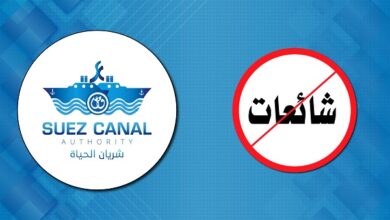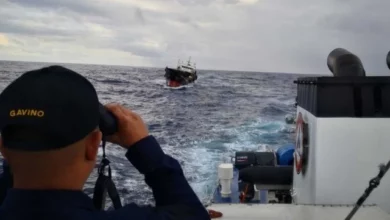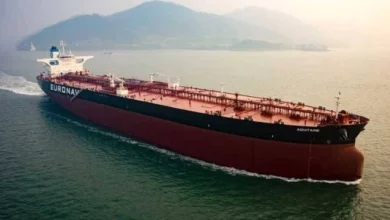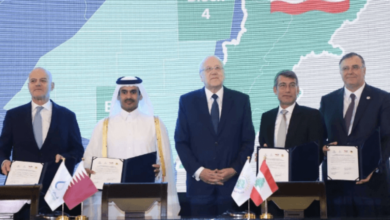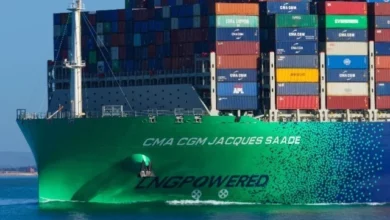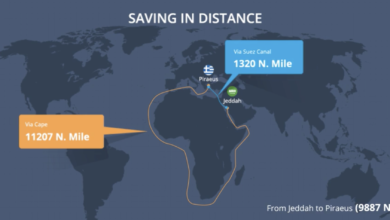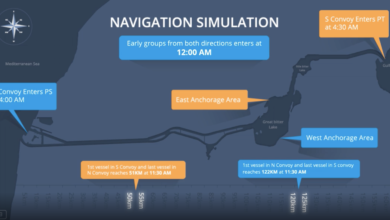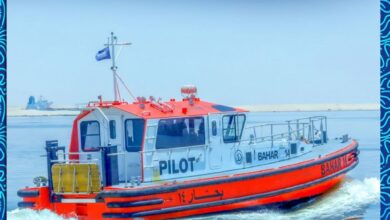HomePorts NewsSuez Canal
Dr. Ayman El Nahrawy write : Towards the Establishment of a Global Logistics Center at Suez Canal Region
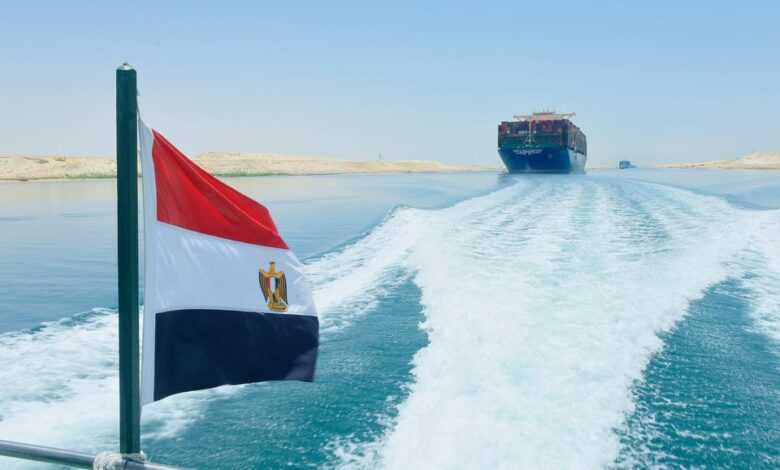

Dr. Ayman El Nahrawy
No doubt that we should learn from international experiences to guide establishing successfully the international logistics center at Suez Canal region with its genuine strategic geographic location, integrating with international free zone, East Port Said port and Sokhna port , in a harmonized operational and economic system that participates in achieving the economic objectives of Egypt.
Importance of Suez Canal to World Economy
Suez Canal is one of the most important waterways in the world due to its unique geographic location between the east and west, it provides the shortest maritime route between the Atlantic Ocean to the Indian Ocean , reducing the journey from Asia to Europe by about 9000 km by skipping a detour around the Cape of Good Hope, the canal is extensively used by modern ships of all types carrying international trade , the strategic importance of Suez Canal endures more importance , because of the Arabian Gulf oil trade and the Pacific Asian commercial trade. The journey from the Persian Gulf to the Northern European range is particularly impacted by the Suez Canal as a 21,000 km journey around Africa taking 24 days is reduced to a 12,000 km journey taking 14 days.
This importance is getting augmented with the evolution of maritime transport and world trade. The maritime transport is the cheapest means of transport, whereas more than 80 % of the world trade volume is transported via waterways (seaborne trade), tolls paid by the vessels represent an important source of income for the Egyptian government
Suez Canal Region as An International Logistics Center
Suez Canal Authority was assigned to act as the official umbrella for carrying out the project and to be responsible for announcing the project tenders as it is a national authority which enjoys high capabilities in management and a world stature, in coordination with the Ministerial group consisting of the ministries of transport, housing, investment, planning, local government and communications.
In the initial stage of the project, all relevant information will be offered to the world consultant houses to reach the best sketch for the project in line with the current and future capabilities of the harbors of East Port Said, North al Sokhna, the Suez Canal and the industrial zone northwest of Suez.
The implementation of the project will lead to transferring the region into a world industrial zone and an international logistic center through benefiting from the status of Suez Canal authority, this colossal development project will help developing the Egyptian National economy and provide new job opportunities.
-
Suez Canal is importance to international trade, as more than 17000 vessels of all types are transiting Suez Canal each year.
-
Egypt in all time from 1869 till now has not yet made the best use of Suez Canal as it counts on it as a source of national revenue from the Canal Tolls which amounts to about U.S.5 billion dollars annually in average.
-
The Egyptian experience of establishing the North West Gulf of Suez special economic zone, was neither successful, as the project was faced by bureaucratic difficulties on all levels, and the marketing capabilities were not efficient enough to attract international companies.
Conclusions:
1- From the logistics point of view, ports are part of the logistics systems along the supply chain which have to respond to pull logistics; their action will contribute towards the reduction of inventory levels along the logistics pipeline, a fall in associated costs, and the fulfillment of tighter customers’ requirements through high service levels within shorter lead-times.
2- World class ports are those ports with a strategic location and large handling and logistics facilities, based on high quality of infrastructure and superstructure, one major characteristic of these ports ,is that they are reasonably big in area size and draft along the berths, to enable them to attract modern generations of vessels, having reliable and well developed feeder and inland transport systems/connections, these ports are very efficient in cargo handling and providing high performance logistics services within the global supply chain, with a very cost effective services.
3- There is a strong world interest in ensuring that ports operate efficiently and safely, providing competitive services, and that ports support and, several countries interest in ports is stemmed from the vital role that ports play as gateways of economic trade and commerce, foster economic development locally and nationally, improving port productivity in all segments of the supply chain , as ports play a key role in international logistics operations, it is in the ports where many of the business opportunities have been identified, that explains the quest for many ports to establish free zones and logistics centers within ports.
4- For world class ports to lead global logistics within their respective regions, as those in Netherlands, Singapore and Hong Kong have consistently expanded their logistics facilities ,accompanied by establishing free trade zones as part of their efforts to consolidate and centralize logistics management, as a result these ports become favorite locations for global firms.
5- The increasing number of logistics centers and FTZs in ports around the world explains the important role of ports in terms of their logistics function. New port functions, compassing logistics centers and FTZ have been having a profound effect on the port industry in the region, as major ports rush to utilize these new logistics systems.
Recommendations:
1- Egypt should work on making the best benefit of its strategic location, for all Egyptian ports development strategy, especially at the greater Port Said area which has a genuine location on the north entrance of Suez Canal, and North West of Suez Gulf Region, by integrating the role of East Port Said Hub port and North Alsokhna port, with world class logistics centers and modern global free zones within the whole area of Suez Canal.
2- For Egypt to establish the Suez Canal International Logistics Center port development strategy, which integrates with a world a modern global free zone, it should establish:
-
Existence of comparative cost advantages
-
A favorable fiscal environment
-
Existing high-tech manufacturing industry base
-
One-stop-shop local marketing organization that proactively promotes the location, supported by appropriate literature and materials
-
Appropriate incentive packages for foreign investors
-
Supporting port infrastructure at all terminal facilities
-
Supporting human resources development programs
-
Pool of high-tech research and development institutes
3- The most important characteristics for Egyptian ports on Suez Canal to integrate with the national, regional and international transport networks, should:
-
Create physical integration of transport by road, rail, inland waterways and sea.
-
Achieve economies of scale through cooperation internally and cooperation with future logistics centers.
-
Create a freight concentration by providing the basis for establishing efficient international transportation links
-
Create a development environment for the transport sector, that integrates with economic development strategy of the country
4- Egyptian ports on Suez Canal should currently take serious steps to improve the quality of their services, and to provide basic logistics and communications infrastructure in order to reap the benefits of e-commerce and IT , information systems should be established to control and facilitate logistics activities, within the national and global logistics Chain through , from / to Egyptian Ports, so as to work in coordination and harmony with the intended global logistics center of Suez Canal region.
5- Egyptian ports on Suez Canal should provide value added logistics services that include:
-
Receiving goods, breaking shipments, preparing for shipment, returning empty packaging.
-
Simple storage, distribution, order picking.
-
Centralizing and customizing, added parts and manuals.
-
Assembly, repair, reverse logistics.
-
Quality control, testing of products.
-
Installing and instruction.


